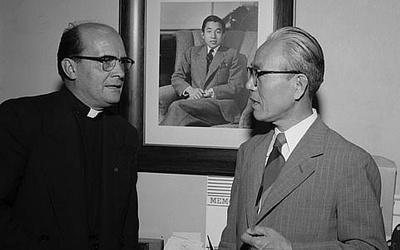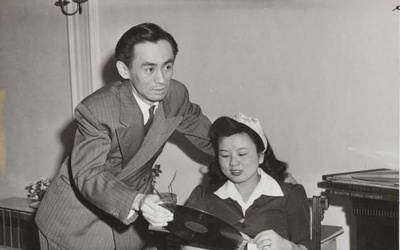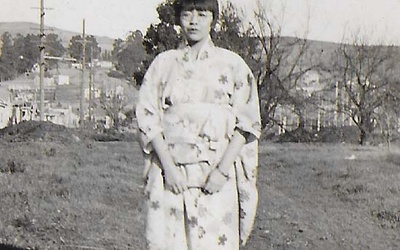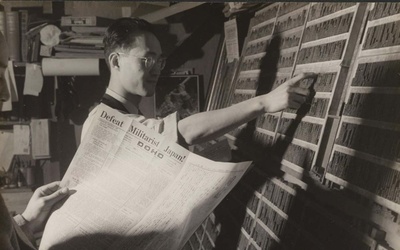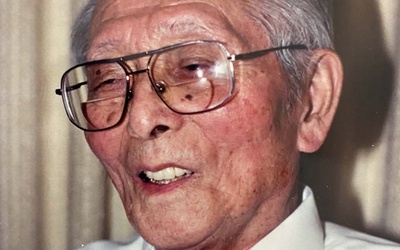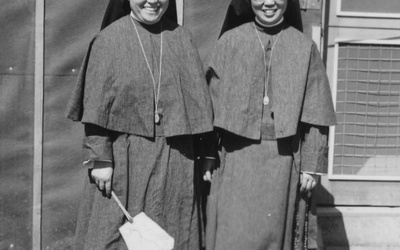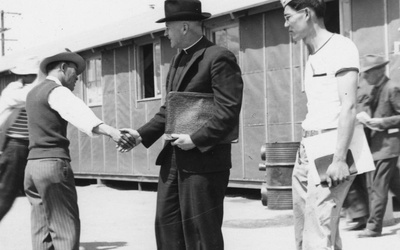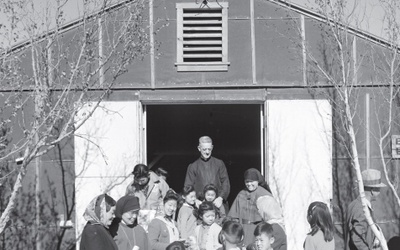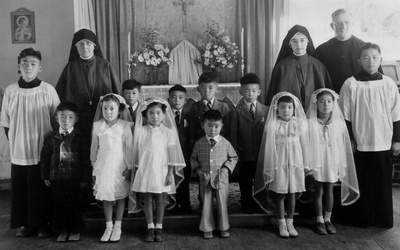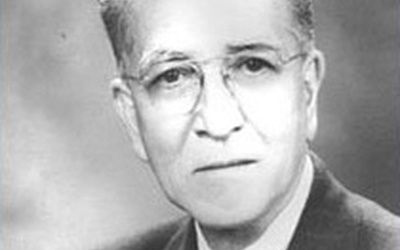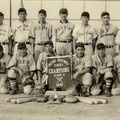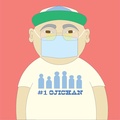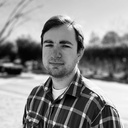
Jonathan van Harmelen
@jonathanJonathan van Harmelen is currently a Ph.D student in history at UC Santa Cruz specializing in the history of Japanese-American incarceration. He holds a BA in history and French from Pomona College and an MA from Georgetown University. He can be reached at jvanharm@ucsc.edu.
Updated February 2020
Stories from This Author
Clement Boesflug: Catholic Priest and JACL Chaplain
Sept. 8, 2021 • Jonathan van Harmelen
Among the Maryknoll Catholic clergy who worked with Japanese Americans, many individuals, including Fathers Hugh Lavery and Leopold Tibesar, served as spiritual teachers and advocates on behalf of Japanese communities. However, few interacted with their parishioners or participated in community politics as much as Father Clement Boesflug. Known commonly as “Father Clement” – in part because of the difficulties people had pronouncing his last name – Clement Boesflug served as a Maryknoll priest across the West Coast and in Japan, and …
The N-Word and the Japanese American Press
Aug. 23, 2021 • Jonathan van Harmelen , Greg Robinson
In the wide world of American racial epithets, one word seems to stand apart as uniquely hateful and wounding: the term euphemized as the “N-word.” Applied to African Americans, it is a corruption of the term Negro—a term that has gone through its own complex history. Like the Nazi swastika, the Confederate flag, or the flaming cross, the “N-word” represents such a toxic symbol of prejudice that even neutral utterance of it, especially by nonblacks, is taboo. (There are hate …
The Other Side of Doho: Kikue Ukai, Groundbreaking Deaf Writer and Editor
Aug. 10, 2021 • Jonathan van Harmelen
In my previous article on Shuji Fujii, I highlighted his work as a writer, editor, and labor activist. Although Fujii ran the radical Japanese community newspaper Doho for most of its existence, he could not have done so without the help of his wife, Kikue. A gifted writer and literary figure, Kikue Ukai Fujii was also one of the first Nisei professional librarians, as well one of the first deaf women of color to attend Gallaudet College and achieve renown. …
Shuji Fujii and the Hidden Lives of Japanese American Communists
July 27, 2021 • Jonathan van Harmelen
One of the more understudied topics in Japanese American political history is the presence of communists among Nisei intellectuals. Indeed, the late Asian American scholar and activist Yuji Ichioka called upon scholars to examine the complex network of Japanese American leftists among the immigrant communities. As with Robin Kelley’s book Hammer and Hoe that details the grassroots organization and activities of working-class black communists in Alabama during the 1930s, it is important to study the activities of the pro-communist faction …
The Karma of Nations: the story of Rinban Kyoshiro Tokunaga
July 13, 2021 • Jonathan van Harmelen
Flipping through an issue of Men’s Health magazine, one usually expects a combination of articles and advertisements on healthy living and positive thinking. As part of my previous research on Buddhist Reverend LaVerne Sasaki, I couldn’t help but notice a headline from the November 1999 issue of Men’s Health that stood out. It was entitled “Holy High Roller Wins! Big Buddhist payoff!” I eagerly leafed through the pages of the article to see what the payoff of Buddhism was said …
The Sisters of Maryknoll and Manzanar
June 29, 2021 • Jonathan van Harmelen
As I have noted in my previous articles on the work of Fathers Leopold Tibesar and Hugh Lavery, a number of Maryknoll clergy played important roles in support of Japanese American communities in West Coast cities. Although priests like Lavery and Tibesar are remembered for their leadership during the incarceration, less known though equally important is the work of Maryknoll’s nuns. Serving as teachers for the Maryknoll school and nurses at the Monrovia Maryknoll Sanitarium, the Maryknoll sisters were responsible for …
Father Hugh Lavery and the Ten Thousand Mile Parish
June 15, 2021 • Jonathan van Harmelen
In a previous article I co-wrote with historian Greg Robinson, I highlighted the life work of Maryknoll Brother Theophane Walsh. Like a number of Maryknoll priests and nuns active in Los Angeles’s Little Tokyo community, Brother Theophane spent most of his life working with the Japanese American community, helping to organize Boy Scout Troop 145 and, during the war, establishing a Chicago Nisei Youth Hostel for families resettling from camp. Like Brother Theophane, the work of Father Hugh Lavery is …
Japanese Culture and Catholic Faith: Maryknoll's Long History in Little Tokyo
June 1, 2021 • Jonathan van Harmelen
April 4, 2021 was Easter Sunday. While Easter celebrations in Little Tokyo do not hold the same importance as community festivities like Nisei Week, the celebration of Christian holidays (and even St. Patrick’s Day) at the St. Francis Xavier Chapel Japanese Catholic Center in Little Tokyo is a tradition that has gone on every year for decades. Although the number of Catholics among Japanese Americans has always remained small – by government estimates, they only accounted for 2% of the …
Father Leopold Tibesar – The Shepherd of Seattle
May 18, 2021 • Jonathan van Harmelen
Perhaps some of the best-known defenders of Japanese Americans during World War II were the religious leaders of Seattle. Leaders like Baptist minister Emery Andrews and Buddhist minister Gladys Sunya Pratt supported the Japanese American community in the face of allegations of treason, and worked with the community throughout the incarceration. One such individual was Father Leopold Tibesar, a Catholic priest and Maryknoll missionary. As historians like Anne Blankenship have written about Father Tibesar’s work with the Seattle community, Tibesar’s …
Kinjiro Matsudaira: Mayor of Edmonston, Maryland
May 5, 2021 • Greg Robinson , Jonathan van Harmelen
In the pre-World War II years, mainland Japanese Americans were all but absent from electoral office. Whereas in Hawaii there were Nisei representatives in the Territorial Assembly and even a Senator, Sanji Abe, those living elsewhere found endemic anti-Japanese prejudice an effective barrier to even running for elected office, though a few West Coast Nisei such as Clarence Arai and Karl Yoneda launched campaigns. After World War II, a wave of Japanese American politicians rose to prominence as part of …

